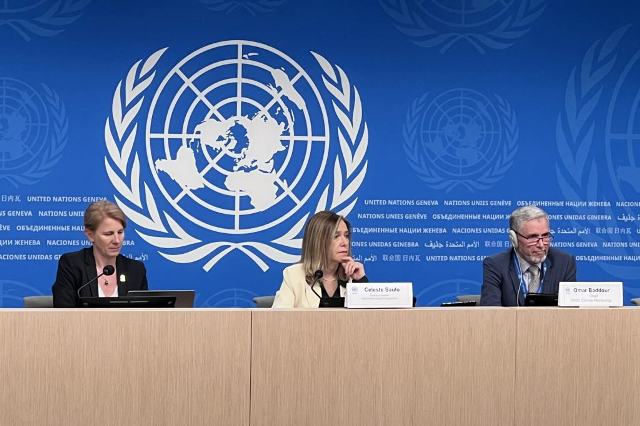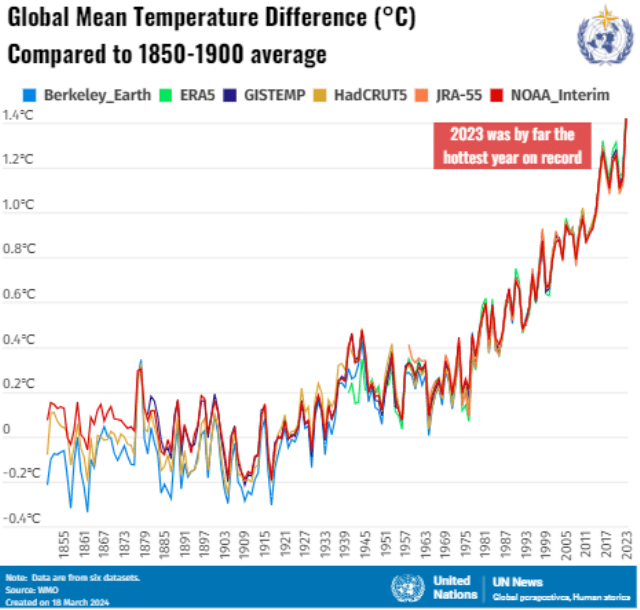In a stark reminder of the accelerating climate crisis, a recent report issued by the UN weather agency (WMO) has revealed a litany of record-breaking environmental indicators. Released on Tuesday, the UN report underscores the dire consequences of unchecked climate change, painting a grim picture of rising temperatures, oceanic turmoil, and extreme weather events.
The WMO’s “State of the Global Climate 2023” report documents unprecedented levels of greenhouse gases, surface temperatures, ocean heat, and acidification, among other concerning metrics. According to the report, heatwaves, floods, droughts, wildfires, and intensifying tropical cyclones have wreaked havoc worldwide, causing widespread suffering and substantial economic losses.
UN Secretary-General Antonio Guterres, in a somber video message accompanying the report’s launch, highlighted the gravity of the situation, stating, “Sirens are blaring across all major indicators… Some records aren’t just chart-topping, they’re chart-busting. And changes are speeding up.”
The year 2023, the report confirms, stood as the warmest year on record, with the global average near-surface temperature surpassing 1.45°C above the pre-industrial baseline.

WMO Secretary-General Celeste Saulo, while presenting the report in Geneva, lamented the missed opportunities to address climate change over the past decades, urging a shift away from short-term economic interests towards safeguarding future generations.
However, the report emphasizes that climate change extends beyond rising temperatures, noting alarming trends in oceanic warmth, sea level rise, glacier retreat, and Antarctic sea ice loss. Approximately one-third of the ocean surface experienced marine heatwaves on an average day in 2023, severely impacting ecosystems and food systems. Glaciers witnessed unprecedented ice loss, with extreme melt observed in various regions worldwide.
Despite the dire outlook, the report offers glimmers of hope, citing a surge in renewable energy capacity additions in 2023 and the growing adoption of multi-hazard early warning systems. However, the report underscores the urgent need for increased climate finance, warning that the cost of inaction could reach staggering levels, urging immediate and ambitious climate action.
The report’s release precedes the Copenhagen Climate Ministerial meeting, where global leaders will convene to accelerate climate action and finalize ambitious agreements on financing at COP29 in Baku later this year. The urgency conveyed by the report underscores the pressing need for decisive action to mitigate the worst impacts of climate change and safeguard the planet for future generations.
Baburajan Kizhakedath

